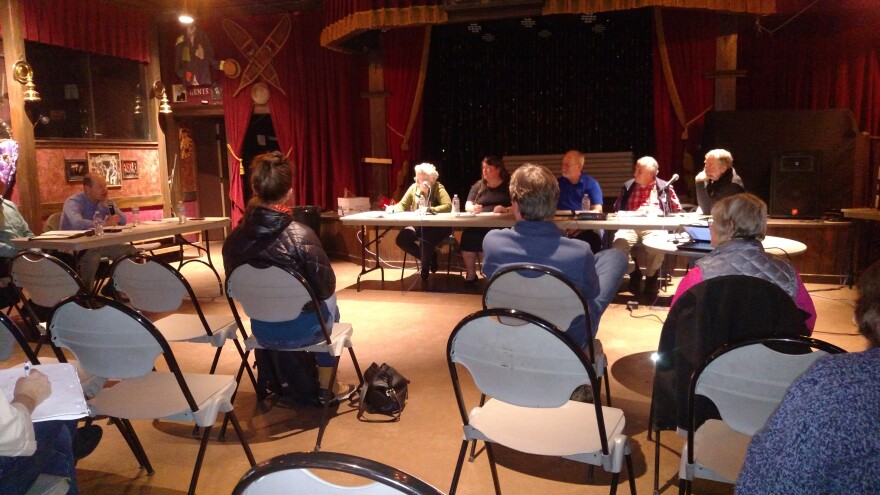The Fairbanks North Star Borough Air Pollution Control Commission decided Tuesday it can’t support an ordinance proposed by Assemblyman Lance Roberts that would promote use of a device that proponents say could offer a lower-cost means of reducing particulate emissions from woodstoves and other solid-fuel heating devices.
Roberts’s ordinance would amend the borough Code to add electrostatic precipitators to the list of approved devices that the borough subsidizes to encourage residents to buy and install on their woodstove or solid-fuel heating device. Borough Assembly members referred the ordinance to the Air Pollution Control Commission after Roberts introduced it during the Oct. 12 Assembly meeting.
“We ended up with a recommendation not to support the ordinance,” Vice Chair Cathy Cahill said. “That recommendation will now go to the borough Assembly, and it’ll be up to them to choose what to do with it.”
Cahill says the commissioners’ 4-to-1 vote against recommending approval of the ordinance by the Assembly does not mean they don’t believe the technology holds promise.
“I think the sentiment of the majority is we don’t know enough about the technology,” she said. “We believe it is something that potentially could work. We’re excited about the potential.”
Commissioner Larry Duffy agrees. He voted against the motion to deny a recommendation, because he says he doesn’t want to discourage further analysis and field testing of the technology, especially while residents in outlying areas are waiting for the Interior Gas Utility to install natural gas distribution lines.
“I just thought that if we don’t do something, if we don’t try something, we’re just going to be sitting with the same technology, facing these same issues waiting for as the testimony said five or six years before we get gas,” Duffy said.
But the federal Environmental Protection Agency doesn’t include electrostatic precipitators on its list of approved pollution-control technologies. And commissioners said testing the technology to the satisfaction of the EPA could take years and at least hundreds of thousands of dollars that the cash-strapped borough would be hard-pressed to come up with.
Cahill says the commissioners were uncomfortable with a provision in the proposed ordinance that would allow the technology to be tested during episodes of poor air quality.
“We’re not willing to give someone carte blanche to burn and potentially get us into trouble with the EPA during Stage 1 and Stage 2 alerts,” she said.
Cahill says she’s glad the advocacy group Citizens for Clean Air is voluntarily testing the technology. The commissioners heard a talk Tuesday by Jeanne Olson, one of the organization’s members, on testing she’s conducting at her house in North Pole.
“We applaud the Citizens for Clean Air and their testing,” she said. “But at the moment, we don’t feel comfortable recommending this be used during the worst-case scenarios.”
Both Cahill and Duffy also agreed the ordinance packed too many provisions into a single measure.
“I’m actually a big fan of very straightforward, simple ordinances,” he said, “not these omnibus ordinances that you’re putting a whole bunch of stuff in.”
Duffy encouraged Roberts to trim down the ordinance and re-submit it for further consideration. Roberts left the meeting at the Pioneer Park Palace Theater after the commission vote, and was unavailable for comment.
Editor's note: More information about the FNSB's Air Quality Comprehensive Plan and other resources is available at the borough's Air Quality Division website.



